
Discovery of Niobium Hydride Precipitates in Superconducting Qubits
This study provides evidence regarding the formation of non-superconducting niobium hydride phases within superconducting qubits at cryogenic temperatures.
January 6, 2026: Phys Rev. Mater.

A Test of the Linearity of Quantum Mechanics
Non-linear quantum mechanical evolution permits different branches of the quantum state wave-function to communicate with each other. This experiment improves the current bounds on such non-linearities by a factor of 50.
July 22, 2025: Phys Rev. D
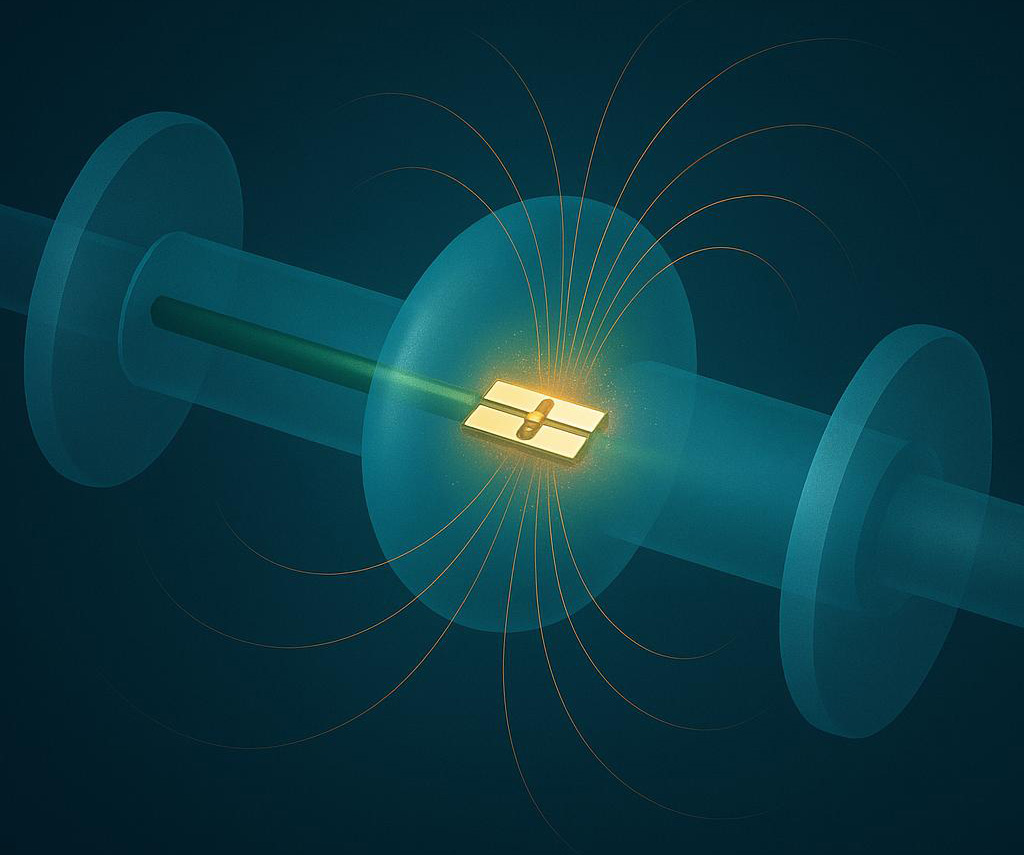
Numerical simulations suggest that, for a system comprised of a high-Q cavity mode coupled with a transmon, could readily algorithmically control dozens of cavity Fock states when benchmarked using contemporary random sampling tests.
April 14, 2025: Quantum Science & Technology
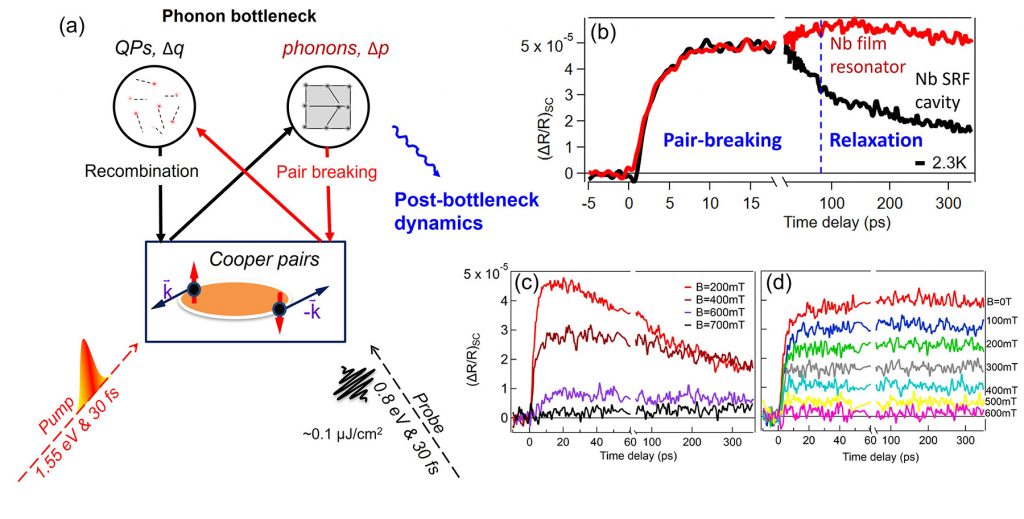
Ultrafast pump-probe experiments reveal distinct temperature- and magnetic-field-dependent pair-breaking and quasiparticle relaxation dynamics in Nb two-dimensional resonators compared to SRF cavities.
January 27, 2025: Materials
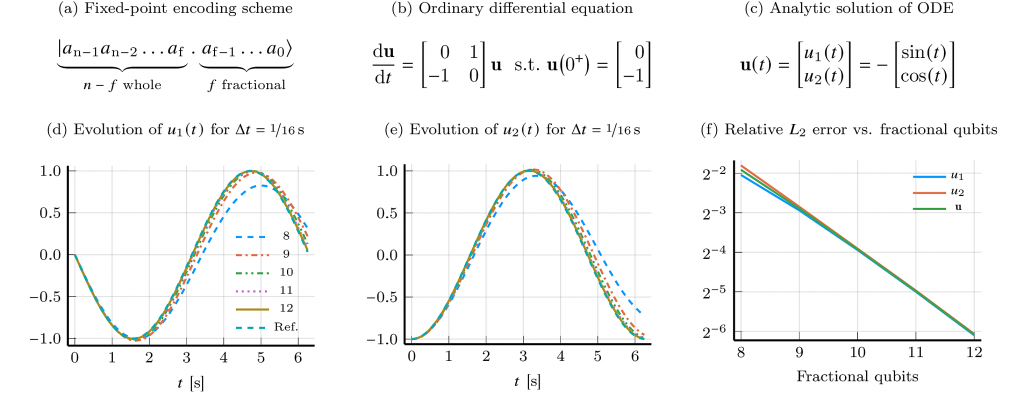
Enabling Classical Scientific Computing on Quantum Hardware with Exact Fixed-Point Arithmetic
Scientific computing requires reliable and predictable arithmetic operations for reproducibility. Approaches to date for fixed-point arithmetic are either inexact or impractical to implement.
2024: IEEE International Conference on Quantum Computing and Engineering (QCE)
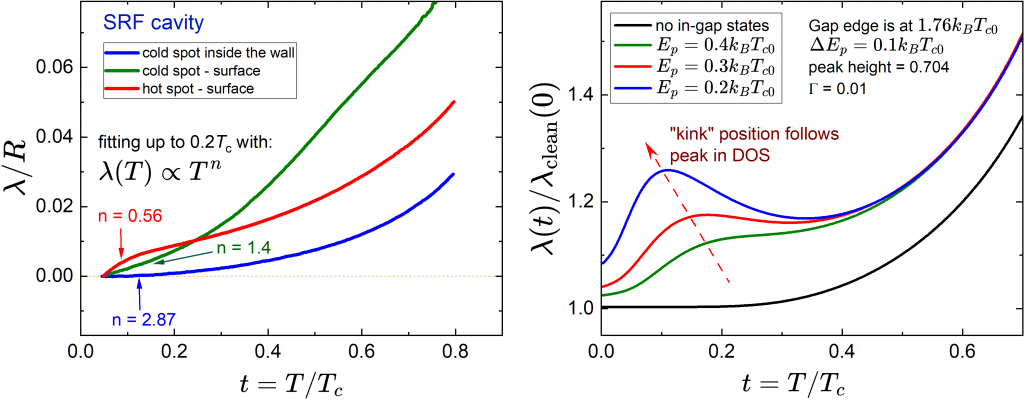
Quasiparticle Spectroscopy from Superfluid Density Measurements
Precision measurements of the London penetration depth in devices provide access to low-energy states inside the superconducting gap, which are the major fingerprints of quantum decoherence.
November 6, 2024: Materials for Quantum Technology
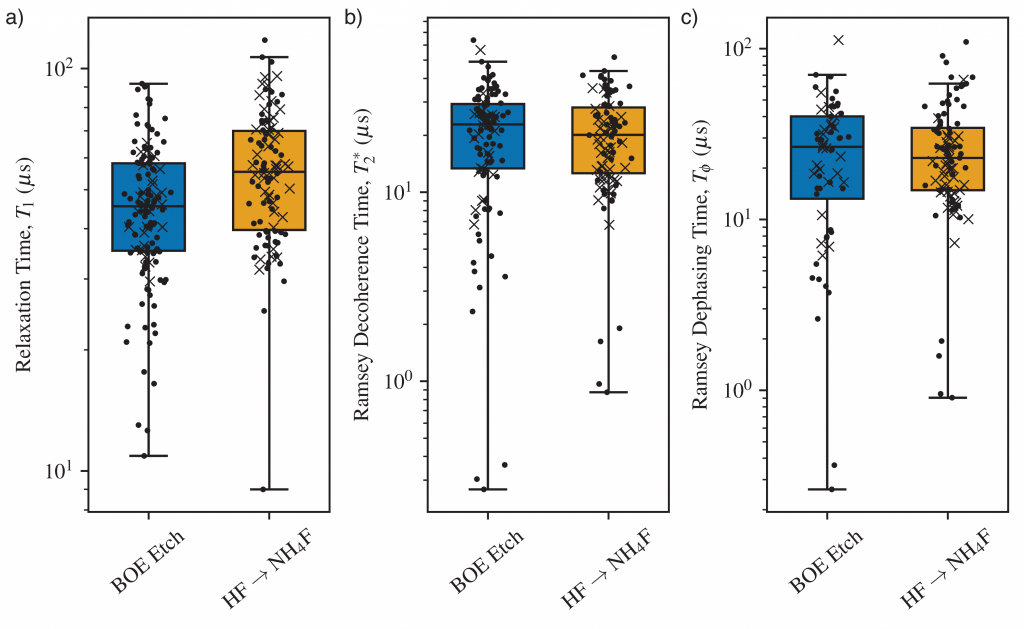
Silicon Surface Modification Improves Qubit Performance
SQMS researchers find changing standard acid treatment can improve qubit performance, and this result gives clues that point toward the sources of two-level systems losses.
November 5, 2024: Materials for Quantum Technology
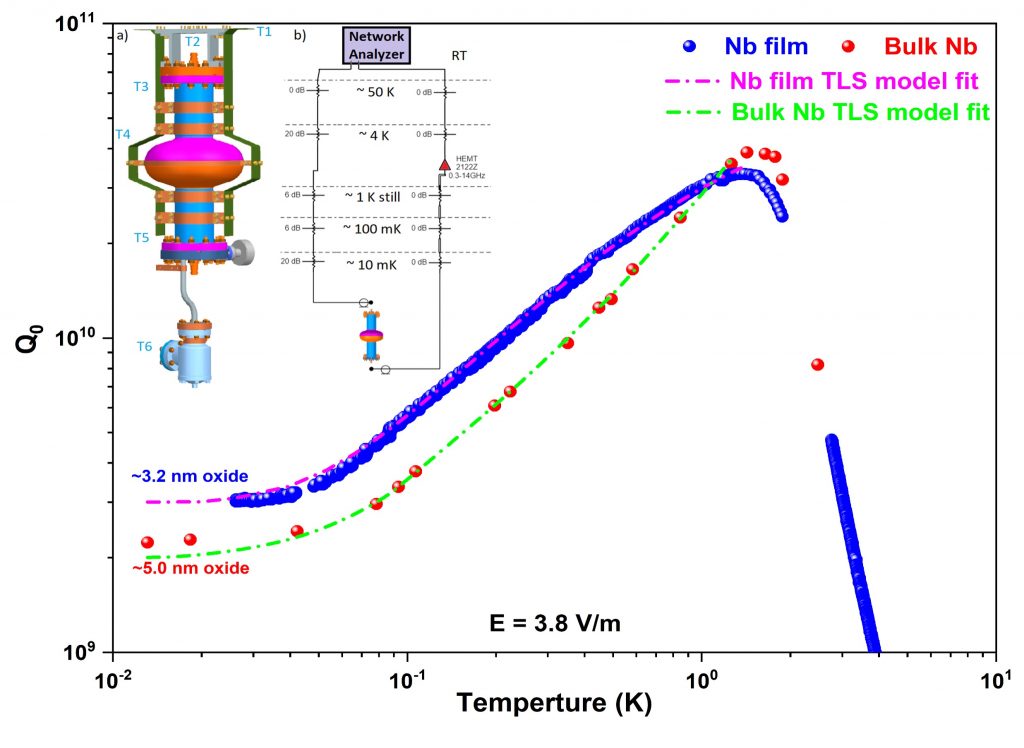
Direct Measurement of Microwave Loss in Nb Films for Superconducting Qubits
Microwave dissipation in niobium films resembles that of record-high intrinsic quality factor of bulk niobium SRF cavities within the quantum regime.
September 16, 2024: Applied Physics Letters
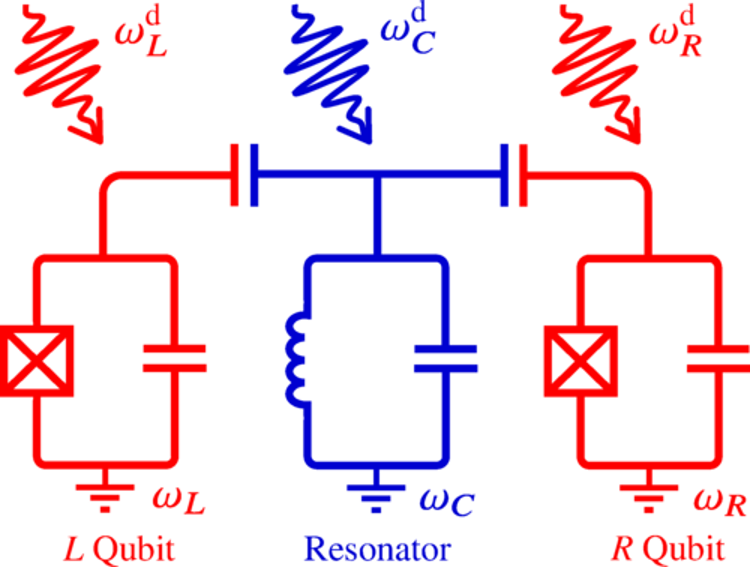
Faster Gates and Reduced Crosstalk on a new 2D QPU Architecture
A simple and scalable architecture to achieve high operation accuracy can be achieved using faster entangling gates
September 4, 2024: Physical Review Applied

Oxygen Vacancies in Niobium Pentoxide: A Key Source of Loss in Nb Superconducting Qubits
SQMS researchers uncover loss mechanisms in the surface oxide, paving the way for mitigation strategies to enhance qubit performance.
August 12, 2024: Physical Review Applied
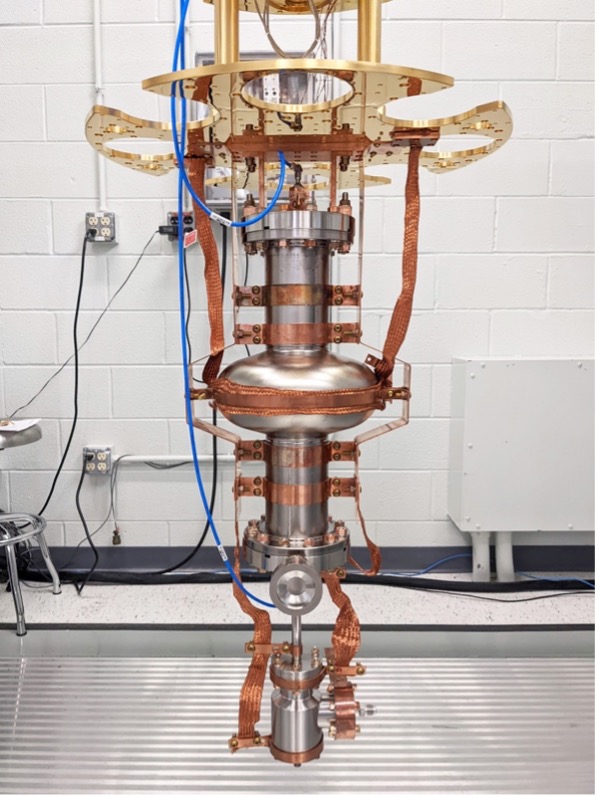
Deepest Sensitivity to Wavelike Dark Photon Dark Matter with SRF Cavities
Fermilab’s expertise in superconducting radiofrequency cavities leads to extremely sensitive dark matter detectors, an order of magnitude more sensitive than previous efforts.
August 12, 2024: Physical Review D
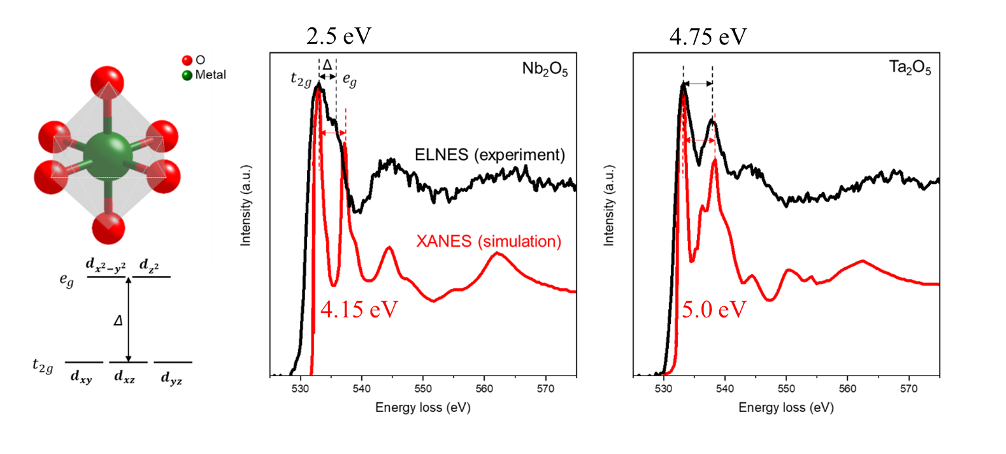
Revealing why Tantalum Oxide is Less Lossy than Niobium Oxides
SQMS scientists unravel the structural difference and formation mechanism of tantalum and niobium oxides in superconducting qubits.
July 21, 2024: ACS Nano
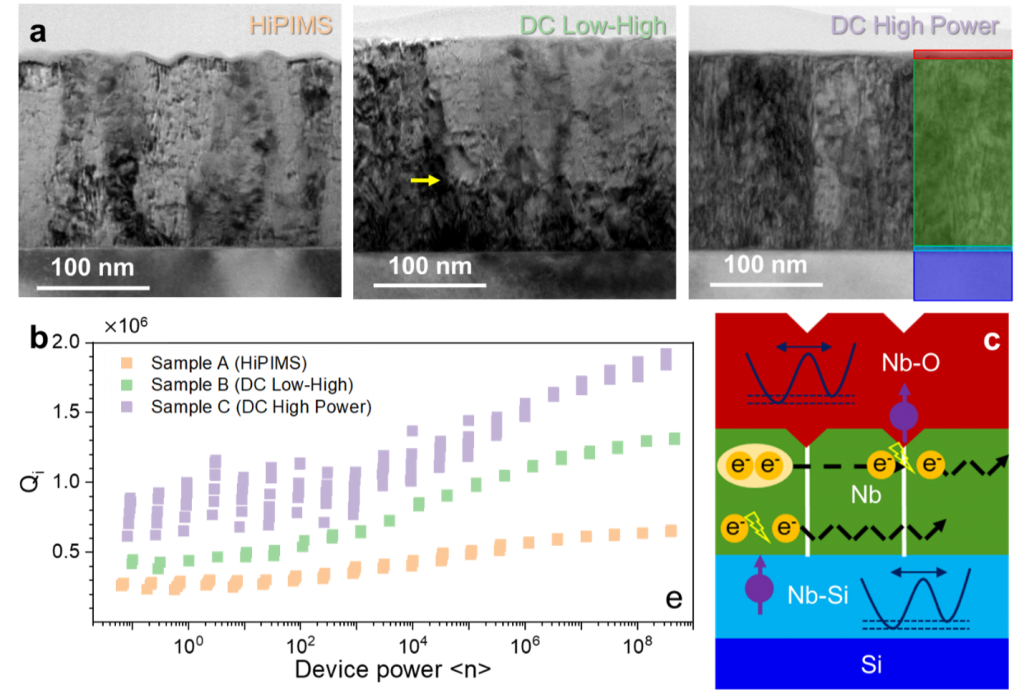
Correlating Structural Imperfections and Resonator Performance
SQMS scientists explore how fabrication methods affect the microstructure and performance of superconducting coplanar waveguide resonators
June 29, 2024: Science Direct

Saving Qubits from Lossy Oxides
Unique qubit fabrication technique enables systematic improvements in performance of superconducting devices for quantum computing, communication, and sensing
April 26, 2024: npj Quantum Information
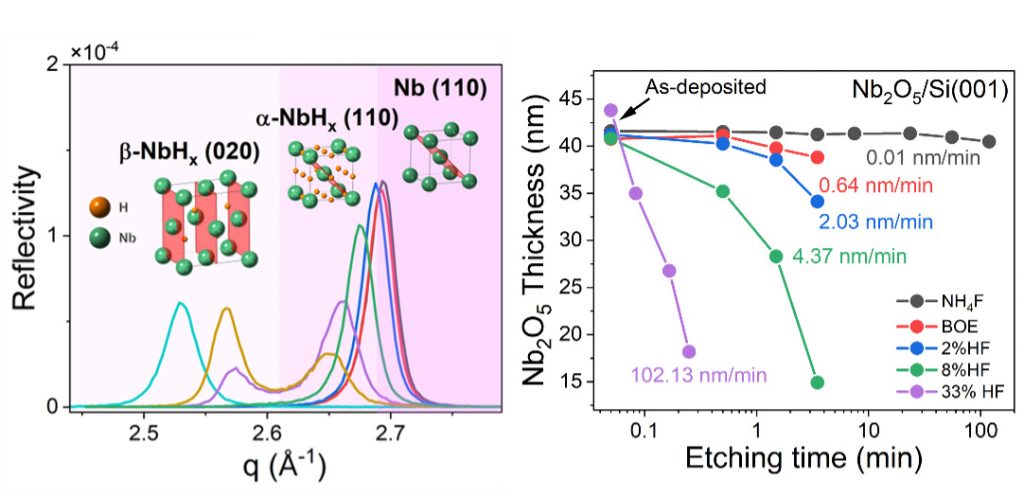
Identifying and Mitigating Fabrication-Induced Losses in Superconducting Quantum Devices
SQMS researchers characterize niobium hydride formation from wet chemical processing and associated noise sources in superconducting devices for quantum information science applications
April 10, 2024: Advanced Functional Materials
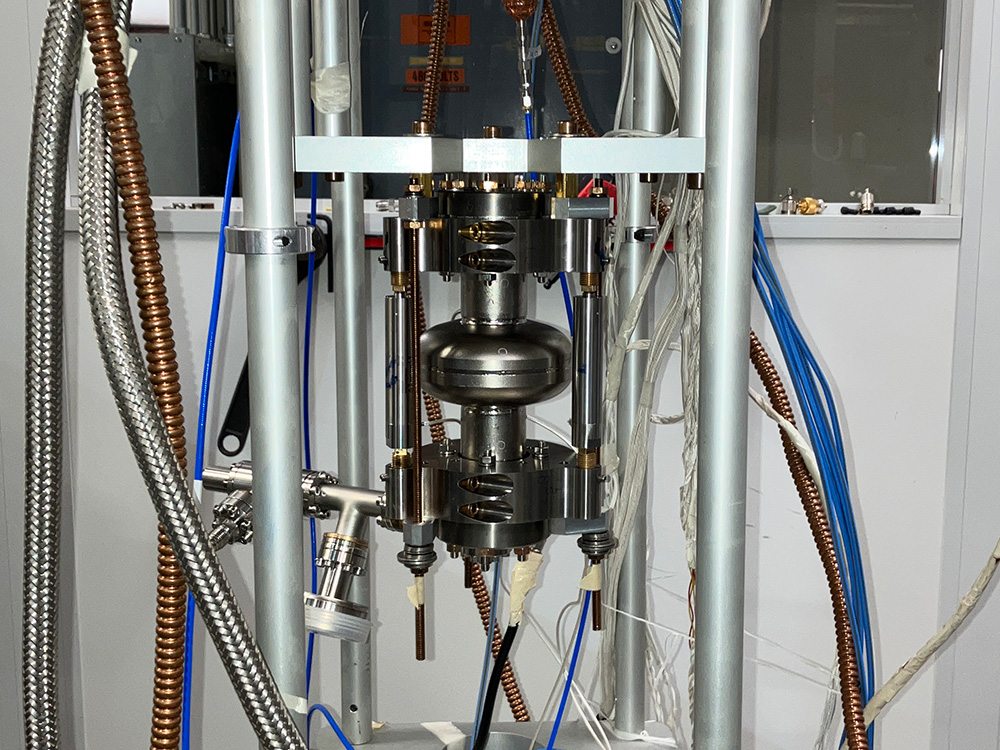
Doubling Photon Lifetime by Interconnecting Superconducting Radiofrequency (SRF) Cavities
Manipulating the phase on a coaxial cable may enable doubling of the coherence time
February 21, 2024: Physical Review Applied

AI meets Quantum: Optimal Gate Compilation using Reinforcement Learning
Harnessing reinforcement learning to optimize quantum state preparation and gate compilation, achieving high-fidelity results even in noisy environments
October 25, 2023: npj Quantum Information
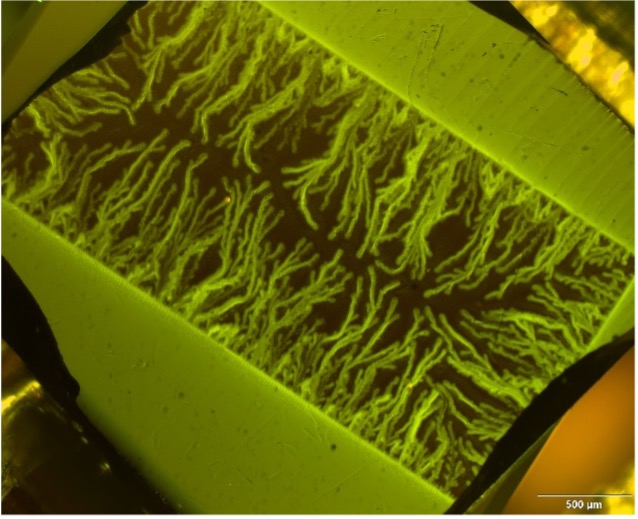
Probing Superconducting State Properties of Nb Films used in Superconducting Qubits
Studying superconducting state properties reveals material imperfections limiting qubit coherence
August 11, 2023: Physical Review Applied
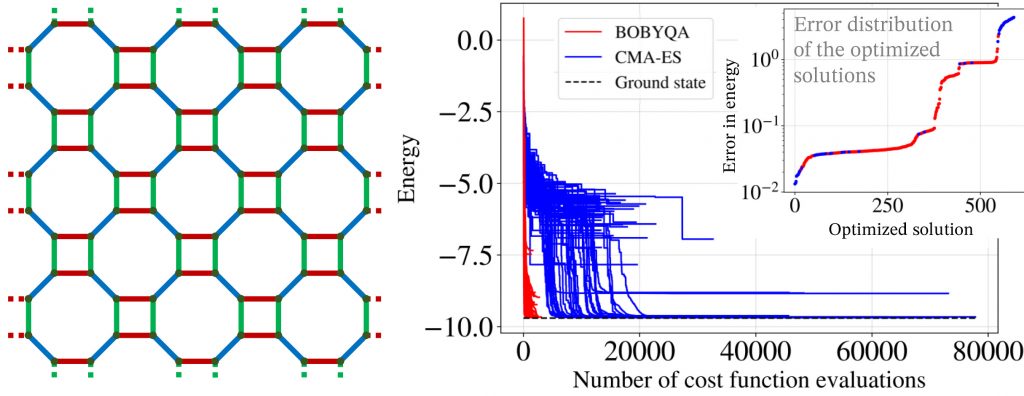
Benchmarking Variational Quantum Eigensolvers for the Kitaev Model
Advancing variational quantum algorithms on NISQ devices
August 1, 2023: Physical Review Research
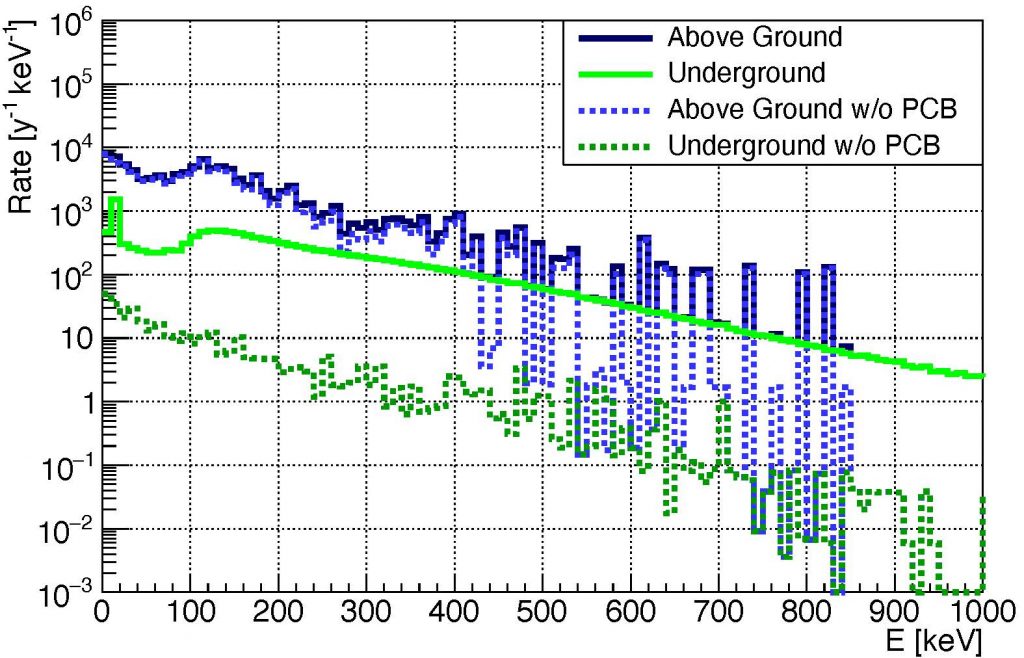
Disentangling the Sources of Ionizing Radiation in a Typical Qubit Chip
Identifying the sources of radioactivity enables the development of appropriate strategies for their mitigation
January 31, 2023: The European Physical Journal C
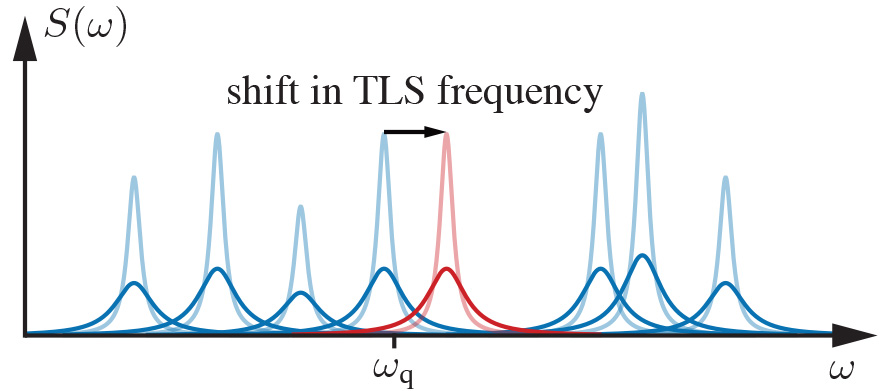
Stabilizing and Improving Qubit Coherence by Engineering Noise Spectrum of Two-Level Systems
Novel protocols reduce qubit noise and stabilize coherence times by engineering the noise spectrum of two-level systems, offering a complementary approach to improving quantum computing performance.
October 11, 2022: Physical Review Applied
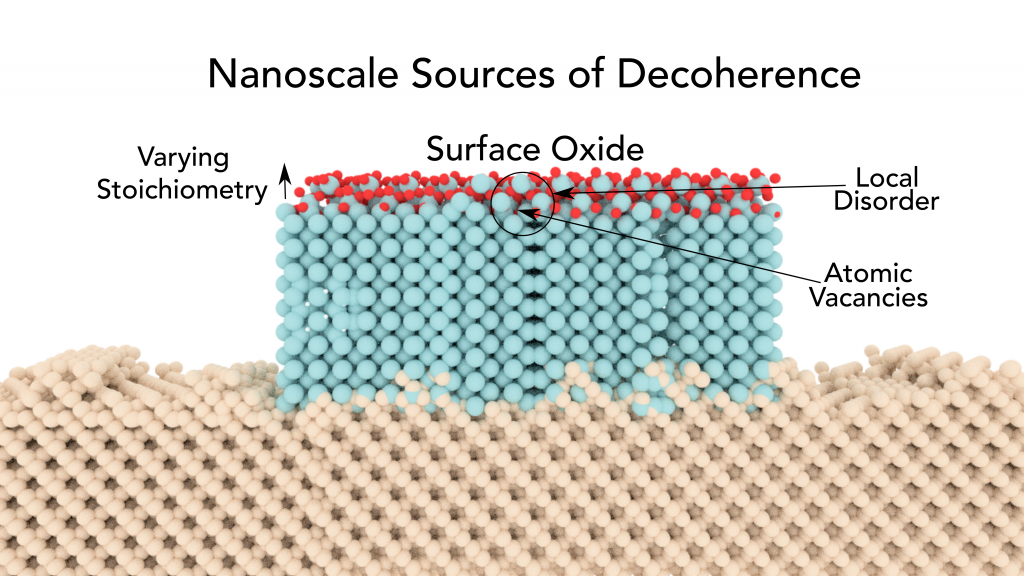
Identifying Potential Nanoscale Sources of Decoherence in Nb Superconducting Qubits
Insights regarding defects in the surface oxide help inform new methods for improving qubit coherence
September 26, 2022: ACS Nano

New insights into the origins of loss in a commonly used superconducting qubit substrate help to develop mitigation strategies for improved qubit coherence
September 7, 2022: Physical Review Applied
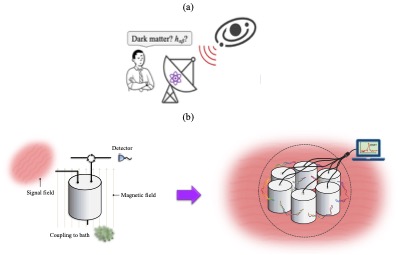
On the Hunt for Dark Matter with Entangled Haloscopes
Exploring the role of entanglement for next-generation detector technology, with applications to fundamental physics
September 6, 2022: PRX Quantum
